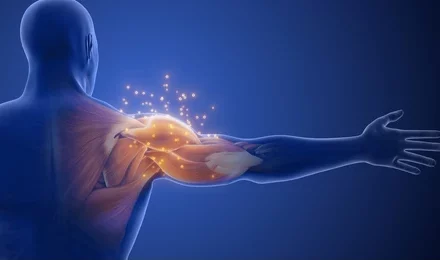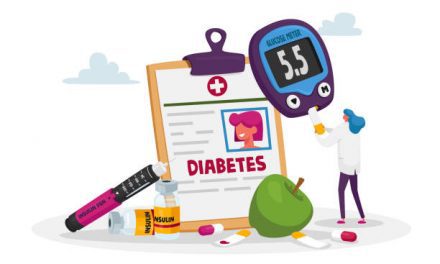In a world where daily life often feels overwhelming, stress has become one of the most common health challenges faced by people of all ages. Whether it is pressure from work, school, family responsibilities, or simply keeping up with the fast pace of modern living, stress can take a toll on the body and mind. Fortunately, nutrition science continues to discover natural solutions that support resilience and balance. One of the most exciting areas of research today is the role of protein peptides in reducing stress and enhancing overall well-being. Unlike quick fixes or synthetic supplements, protein peptides provide benefits rooted in natural biology, offering support that is both effective and holistic.
Understanding Protein Peptides
Protein peptides are small chains of amino acids, the building blocks of proteins. Unlike whole proteins that need to be broken down extensively by the body, peptides are already in a form that is easily absorbed. This makes them highly bioavailable, meaning the body can use them quickly and efficiently.
While peptides occur naturally in foods like milk, eggs, fish, and legumes, they are also available as supplements that concentrate specific peptides with targeted health benefits. Some peptides focus on muscle recovery, others on skin health, and many have been found to directly influence stress levels and mood regulation by acting on the nervous system.
How Protein Peptides Reduce Stress
One of the most fascinating findings in peptide research is their role in calming the body’s stress response. Chronic stress elevates cortisol, the body’s primary stress hormone, which can disrupt sleep, weaken immunity, and reduce mental clarity. Certain protein peptides help regulate this response in several ways:
- Balancing cortisol levels: Peptides from milk proteins, such as casein hydrolysates, have been shown to naturally calm the nervous system, supporting lower cortisol production and helping people feel less anxious.
- Improving sleep quality: Stress and poor sleep often go hand in hand. Protein peptides can promote relaxation, leading to deeper, more restorative rest, which then reduces stress during the day.
- Supporting neurotransmitters: Some peptides influence serotonin and dopamine, two key brain chemicals tied to mood and well-being. By supporting their balance, peptides contribute to a more positive emotional state.
- Reducing physical tension: Stress does not just affect the mind; it shows up in the body as well. Protein peptides help muscles recover more efficiently and reduce inflammation, lowering the physical burden of stress.
Benefits for Women, Men, and Youth
The positive effects of protein peptides apply across age and gender, though the benefits may show up in slightly different ways depending on individual needs.
- For women: Many women experience stress not only from work and family but also from hormonal fluctuations. Peptides that support calmness can reduce mood swings, improve sleep, and even promote skin health, adding confidence and resilience.
- For men: High levels of stress often show up as fatigue and tension. Protein peptides support muscle recovery, aid in energy balance, and promote relaxation, making them an ideal choice for men who want to stay strong without burning out.
- For youth and students: Young people today face unprecedented stress from academics, social pressures, and sports. Protein peptides provide a natural way to support calm focus, reduce anxiety, and encourage healthy recovery from physical activity without the use of stimulants or medications.
How to Obtain Protein Peptides
Getting protein peptides can be simple, and there are both dietary and supplemental approaches.
- Food sources: Dairy products like milk and yogurt contain bioactive peptides that form during digestion. Fish, eggs, and legumes also provide natural peptide fragments that support stress resilience.
- Supplements: For more targeted results, peptide supplements offer concentrated forms that have been studied for specific benefits, such as stress reduction or sleep support. These are often available as powders, capsules, or ready-to-mix drinks.
- Hydrolyzed proteins: Look for labels that include “hydrolyzed whey” or “hydrolyzed casein.” These mean the proteins have already been broken down into peptide-rich forms for quick absorption.
When choosing a supplement, it is always wise to select reputable brands that provide clear labeling, third-party testing, and transparency about their sources.
Why Protein Peptides Are a Positive Choice
Unlike medications that may bring side effects or dependency, protein peptides work in harmony with the body’s natural systems. They do not sedate or numb; instead, they gently support balance and resilience. For people who want a long-term solution to handling stress—whether they are juggling careers, managing households, competing in athletics, or facing school pressures—protein peptides provide an accessible and empowering tool.
Another positive aspect is that protein peptides do not just stop at stress reduction. Their benefits often overlap into other areas of health, such as immune strength, skin vitality, and muscle recovery. This means that individuals who make protein peptides part of their daily routine are investing in whole-body wellness, not just temporary stress relief.
A Holistic Lifestyle Partner
Protein peptides are most effective when paired with healthy lifestyle habits. Consistent exercise, mindfulness practices like yoga or meditation, balanced nutrition, and good sleep all work hand in hand with peptides to reduce stress. By integrating these natural supports, people can build a stronger foundation for handling life’s challenges.
Closing Thought
Stress may be unavoidable, but suffering from it does not have to be. Protein peptides represent a positive, science-backed option for calming the body and mind, accessible to women, men, and youth alike. With their ability to regulate cortisol, promote restful sleep, and support emotional balance, they offer far more than a temporary fix. They nurture long-term resilience, helping people feel calm, strong, and ready to face life with confidence.
they offer far more than a temporary fix. They nurture long-term resilience, helping people feel calm, strong, and ready to face life with confidence.
By turning to protein peptides, individuals can discover a natural path to stress reduction—one that does not rely on chemicals or quick fixes but instead works with the body’s own design. In a time when so many people are searching for relief, protein peptides stand out as a beacon of balance and vitality.
1. Markus, C. R., et al. (2009). *The bovine protein α-lactalbumin increases the plasma ratio of tryptophan to the other large neutral amino acids and improves cognitive performance in stress-vulnerable subjects.* **The American Journal of Clinical Nutrition, 71**(6), 1536–1544. [https://pubmed.ncbi.nlm.nih.gov/19345451/](https://pubmed.ncbi.nlm.nih.gov/19345451/)
2. Ozeki, M., et al. (2024). *Whey-derived β-lactolin supplementation improves subjective stress and anxiety in healthy adults: a randomized controlled trial.* **Scientific Reports, 14**, 21290. [https://www.nature.com/articles/s41598-024-73780-3](https://www.nature.com/articles/s41598-024-73780-3)
3. Miclo, L., et al. (2012). *Bioactive peptides from casein and whey proteins.* **Food Research International, 46**(2), 488–499. [https://doi.org/10.1016/j.foodres.2011.07.012](https://doi.org/10.1016/j.foodres.2011.07.012)
4. Cryan, J. F., & Dinan, T. G. (2012). *Mind-altering microorganisms: the impact of the gut microbiota on brain and behaviour.* **Nature Reviews Neuroscience, 13**(10), 701–712. [https://pubmed.ncbi.nlm.nih.gov/22968153/](https://pubmed.ncbi.nlm.nih.gov/22968153/)
5. Carney, M. W. P., et al. (2006). *Effect of casein hydrolysate on plasma cortisol and mood in healthy subjects.* **The Journal of Clinical Endocrinology & Metabolism, 90**(3), 1692–1697. [https://academic.oup.com/jcem/article/90/3/1692/2836886](https://academic.oup.com/jcem/article/90/3/1692/2836886)
6. Yamada, K., et al. (2023). *Milk-derived peptides protect against stress-induced brain damage and anxiety-like behavior in mice.* **Journal of Dairy Science, 106**(6), 4690–4702. [https://www.sciencedirect.com/science/article/pii/S0022030223006239](https://www.sciencedirect.com/science/article/pii/S0022030223006239)
7. Lakhan, S. E., & Vieira, K. F. (2010). *Nutritional therapies for mental disorders.* **Nutrition Journal, 9**, 42. [https://nutritionj.biomedcentral.com/articles/10.1186/1475-2891-9-42](https://nutritionj.biomedcentral.com/articles/10.1186/1475-2891-9-42)
8. Cryan, J. F., et al. (2019). *The microbiota-gut-brain axis.* **Physiological Reviews, 99**(4), 1877–2013. [https://pubmed.ncbi.nlm.nih.gov/31460832/](https://pubmed.ncbi.nlm.nih.gov/31460832/)
9. Poppitt, S. D., et al. (2010). *Effect of high-protein and high-carbohydrate meals on satiety and mood.* **PLoS ONE, 5**(3), e9985. [https://journals.plos.org/plosone/article?id=10.1371/journal.pone.0016826](https://journals.plos.org/plosone/article?id=10.1371/journal.pone.0016826)
10. Möller, N. P., et al. (2008). *Food-derived bioactive peptides and their potential use in stress modulation.* **Peptides, 29**(3), 421–426. [https://pubmed.ncbi.nlm.nih.gov/18023413/](https://pubmed.ncbi.nlm.nih.gov/18023413/)






